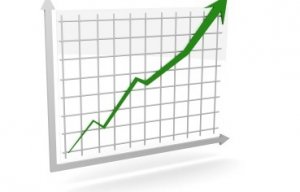
Johns Manville increases price for polyester spunbond nonwovens by 8%
RadiciGroup has reported a sales revenue growth in the first half of 2017, but slightly lower sales revenue of EUR 946 million in 2016.
-480x291-boxed.jpg)
13th July 2017
Innovation in Textiles
|
Bergamo
“The Group is solid and well organised. The slight drop in sales revenue can be attributed to the falling trend in raw materials prices, which thus affected our figures. The Plastics Business Area made a significant contribution to Group results, but, in general, we managed to keep the sales volume of all Group business areas consistent with the prior financial year,” said Angelo Radici, president of RadiciGroup.
“Still ongoing is our action plan to put the Group in a position to achieve continuous growth: optimising resources, increasing plant efficiency and reducing energy use. What’s more, our results for the first months of 2017 are very positive, with sales revenue up by over 23% and sales volume up by 7%.”
For over 10 years, RadiciGroup has reported on its economic, environmental and social performance in its annual Sustainability Report. In advance of the soon-to-be-released 2016 Report, the company provided some highlights.
In the last five years, RadiciGroup has reduced total energy needed to process one tonne of product by 21%. In 2016, 51.6% of the electricity used by the Group was from renewable sources. “This achievement was made possible because of the specific decision of the Group to increasingly opt for energy sources with limited environmental impact. Hence, in the last five years, the use of electricity from renewable sources has continued to rise from 41.3% in 2012 to 51.6% in 2016,” the company explains.
In addition, during the last five years Group emissions have fallen from 0.85 tCO2eq/t (2012) to 0.49 tCO2eq/t (2016): a total decrease of 42%. Also improved is the quality of emissions to air, with a drop in pollutants of over 66%, mostly due to the installation of the latest generation pollution abatement equipment.
RadiciGroup operates in the chemicals industry with a plant in Novara, Italy, and another in Zeitz, Germany, where specialised staff work on the production of chemical intermediates and PA 6.6 polymers. Besides these two production sites, the Group has a sales office in Shanghai, China, for PA6 and PA 6.6 polymers, adipic acid and dicarboxylic acids. Today, RadiciGroup says it is the only European group able to control its entire production chain, from polymer chemistry to the production of synthetic fibres and engineering plastics, including end-of-life recycling.
As regards the Performance Plastics Business Area, the acquisition of the American company Invista’s Engineering Polymer Solutions was completed in 2016. The transaction has allowed RadiciGroup to strengthen its presence in the North American and European markets by increasing production capacity and synergistically optimising competence, know-how, technologies, state-of-the-art systems and approvals usable in the global automotive, electrical/ electronics, industrial and consumer goods industries.
Therefore, financial year 2016 was full of great satisfaction for the Plastics Business Area. Sales revenue was in an uptrend, as was sales volume, in all the geographical areas where the Group has subsidiaries (Brazil, China, France, Germany, India, Italy, Mexico, Spain, the Netherlands, the UK and the USA).
In 2016, the Synthetic Fibres and Nonwovens Business Area recorded overall sales revenue of EUR 412 million. At the global level, the use of synthetic fibres is growing at a higher rate than natural fibres. The production of polyamide 6 and 6.6 yarn is the core business of RadiciGroup’s Fibres Business Area. Market demand for the man-made fibre polyester greatly exceeds the demand for cotton.
Today, the market requires about 50 million metric tonnes of polyester, but by 2030 the demand should reach 70 million metric tonnes, the company reports. Although the market is dominated by Asian manufacturers, in Europe RadiciGroup is the second leading producer (24 thousand metric tonnes/year) and offers a range of thousands of colours, counts and elasticities.
As announced in 2016, by the end of 2017, a new spunbond production line will be started up at Tessiture Pietro Radici (TPR). The new line will increase TPR’s production capacity by about 50% and will allow for the development of products with a wider range of technical characteristics. TPR will also continue to manufacture artificial grass yarn, by developing materials to meet not only the highly technical sports performance characteristics and playing comfort required by synthetic turf football pitches but also the aesthetic properties.

Business intelligence for the fibre, textiles and apparel industries: technologies, innovations, markets, investments, trade policy, sourcing, strategy...
Find out more